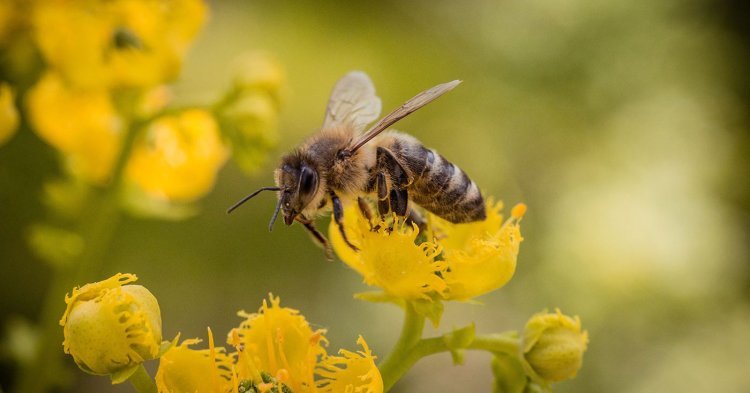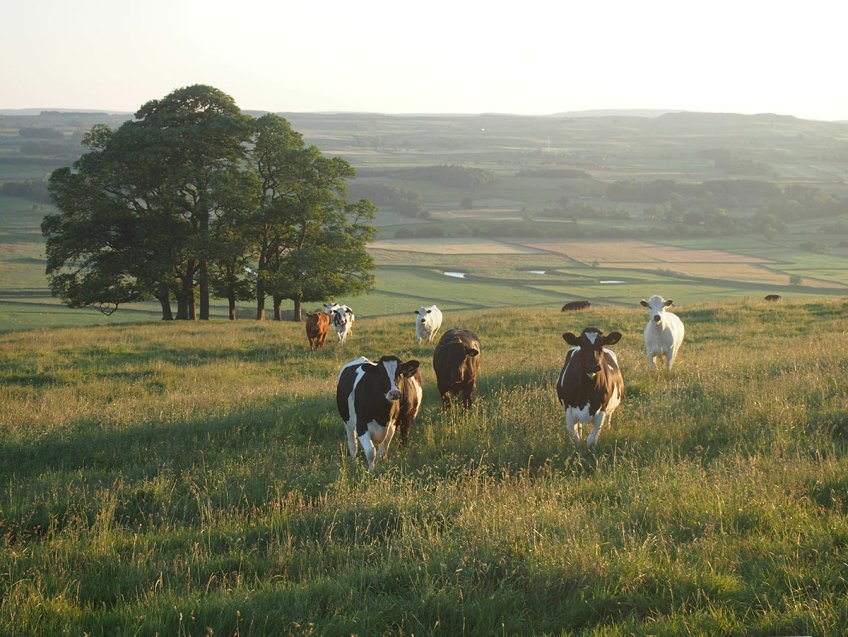Environment Secretary George Eustice set out the new system’s lofty ambitions last year: “We must design [a policy] that is not only right for the farmers of today but is also right for the farmers of tomorrow … We want to remove the old style, top down rules and draconian penalties of the EU era.”
Realistic? Too dramatic? After all, farming policy was hardly top of the average Brexit voter’s agenda. But the CAP had caused constant strain in EU-UK relations over nearly half a century. Successive governments saw it as bureaucratic, expensive and not tailored enough to the UK’s needs. In 2019, a poll of British farmers found 43% backed a no deal Brexit, even though the National Farmers’ Union warned it would be ‘catastrophic’ for the sector.
The UK farming sector never got off to a good start with CAP. It had missed its chance to have a say on the initial deal, decided three years before it joined in 1973. Due to a relatively small farming sector, it paid in more than it got out. Food prices shot up 13%. With the British economy in tatters during the 1970s, the perception that millions of pounds was going offshore to prop up other countries’ farming sectors was not well received.
Even after the UK negotiated a 20% rebate in 1984, the policy rankled. The tabloids did not hesitate to fill up their front pages with wine lakes and butter mountains caused by the old system of buying up surpluses. A change to land-based Direct Payments meant the bulk of funds went to large landholders, driving up land prices and shutting out new farmers.
Meanwhile, environmental destruction was an increasing concern for the left. Cash for landholding encouraged wild land to be converted to farms and a focus on productivity was blamed for soil erosion, river pollution and biodiversity loss. Wildlife populations have plummeted in the UK since the 1970s, with the CAP providing little incentive to halt the fall.

George Eustice, Secretary of State for Environment, Food and Rural Affairs. Pic: UK Parliament
A new vision for farming
The new Agriculture Bill, which the UK Parliament passed in November 2020 after over 100 hours of debate, sets out a bold new vision to address the harms of the CAP subsidies system, as well as restore some of what has been lost.
After a six-year transition period, farmers will no longer be paid according to how much agricultural land they manage. Instead, the government will reward them for looking after their land in a way that is good for society. That means farmers will earn targeted payments by taking up agricultural and land management practices which protect shared resources like clean air and water, protection against climate change, wildlife and healthy soil. The Department for Environment and Rural Affairs (DEFRA) calls this strategy “public money for public goods”.
Although the details of the policy have not yet been finalised, DEFRA has said this could mean supporting farmers to provide habitats for native animals, or planting trees to capture carbon and reduce flooding risk. Farmers could also be rewarded for using water and pesticides efficiently, raising animal welfare standards or investing in better slurry stores to avoid contaminating waterways.
Crop rotation will be encouraged to help prevent soil erosion – although the CAP’s restrictive three-crop rule, which required farms of a certain size to grow at least three crops, had already been scrapped. Meanwhile, one-off payments can be made to support more ambitious projects, like large-scale rewilding or restoring peatlands. 70% of British land is farmed, meaning these policies have the potential for a massive impact on the natural landscape.
Unlike the CAP, often criticised for treating all EU regions in the same way, the Agriculture Bill has devolution baked in. England, Wales, Scotland and Northern Ireland will each be free to set their own policies under the larger framework.
Under the new system, DEFRA boasts farmers will become part of a “renewed agricultural sector” that will contribute “significantly to environmental goals including addressing climate change”. Once freed of the EU’s “prescriptive, top-down rules”, it claims scientific advances will blossom, “fusing the best modern technology available today with ... the traditional art of good farm husbandry”. Some have argued a similar change was achieved when New Zealand reformed its farming sector in the 1980s.
The scenic British countryside is 70% farmed. Pic: Jakob Cotton, Unsplash
Down to earth
Such sweeping reform will not be without its casualties, of course. Around 57% of British farmers’ income comes from subsidies so it is likely to lead to big reductions in profitability for many – if not most – farmers by the time the CAP-matched subsidies end in 2027. Many farms will fail. While it may not be a bad thing to stop providing a crutch for unproductive farms, post-pandemic, a weakened UK economy may not be able to shrug this off easily.
One danger may lie in potentially disrupting the UK’s food supply system, something already thrown into sharp focus by border queues earlier this year. Professor Tim Lang, a food policy researcher, has warned that with only around half of the UK’s food produced in the country, and a food trade deficit of £24.4bn, Britain could end up heavily reliant on imports. The end of free movement will also affect the ability of farms to hire workers from EU countries, who are often willing to accept lower wages.
Some also argue the new system will simply mean paying farmers for doing things they should already be doing, like treating their animals humanely. George Monbiot of the Guardian has called it a “protection racket” that uses “public money as a substitute for regulation”. What’s more, it may end up benefiting only those who can afford to put in upfront cash for green schemes, continuing the CAP’s preferential treatment of larger farms.
Questions unanswered by the Agricultural Bill include how the money will be allocated, as well as the all-important question of whether these green efforts could be undermined by trade deals. A US trade deal, for example, would risk simply shifting bad farming practices abroad. And for all the UK government’s ambitious wording, outside of EU regulation there is much scope for standards to drop. The government has already reversed an EU ban on neonicotinoid pesticides, which are highly toxic to bees.
The delayed Environment Bill, however, promises eco-friendly policies and an environmental watchdog designed to uphold the new standards and show the government is committed to protecting the natural world post-Brexit.
Meanwhile, Brexit has reduced the CAP budget by 12-15%, according to LSE researchers. This could mean a lesser appetite for similar reform in the EU – and certainly, the changes announced last year have disappointed many.
Paradoxically, if successful, Britain’s new paradigm could be more influential than any changes it could have made from within the union. “If we work together to get this right, then a decade from now the rest of the world will want to follow our lead,” said Eustice. Let us hope that he is right.



Follow the comments: |
|
